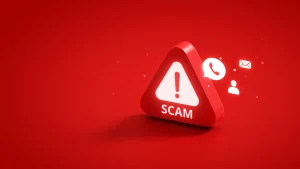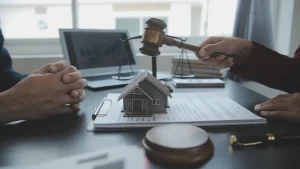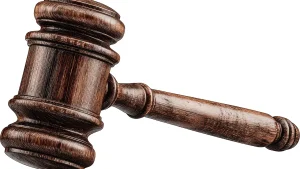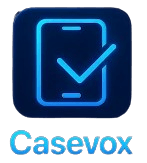If you have started getting calls or letters from Central Credit Control and you do not even recognize the account they are talking about, the stress can feel immediate. Maybe you miss a call, search the number online, and suddenly see results mentioning collection agencies and complaints. It is very common for people in that situation to type the company Harassment into a search bar because they want to know if what is happening is even legal.
On top of that, you may be unsure whether the call was real or a scam. You might be trying to confirm a the company Phone Number from an official source so you know who you are really talking to before you consider any payment.
The good news is that you have rights. Even when a is real and the debt is legitimate, they do not get to treat you any way they want. This guide explains who Central Credit Control is, why they are contacting you, how to recognize harassment, which laws protect you, and what practical steps you can take to make the situation safer and more manageable. You will also see how Consumer Rights Law Firm PLLC can stand between you and the collector so you do not have to handle everything on your own.
Who Central Credit Control Is
Central Credit Control is a Canadian debt collection agency based in Barrie, Ontario. Its own site and multiple business directories list the office at 51 King Street, Suite 3, Barrie, Ontario, with service across Canada.
The company describes itself as a national collection agency that works for many types of creditors, including
- 👉 Retail businesses
- 👉 Medical providers and clinics
- 👉 Commercial accounts
- 👉 Landlord and tenant related accounts
- 👉 Financial and utility accounts
According to its own corporate information and industry profiles, the agency has been in business for more than three decades and operates as a relatively small agency rather than a large call center.
Contact information on the official site includes a Barrie office line at 705 734 1400 and a toll free line listed as 1 877 222 9876, along with a fax line and an email address for the company president. These details are useful when you want to verify whether a call or message really came from the agency.
Is Central Credit Control Legitimate Or A Scam

It is natural to wonder whether a company asking for money is real. Business and credit industry listings confirm that Central Credit Control is a legitimate corporation that has been operating since the late nineteen eighties and that it belongs to industry groups for collection agencies in Canada.
The Better Business Bureau page for the agency lists the Barrie address and phone numbers, shows that the business file has been open for many years, and rates the company with an A plus rating even though it is not formally accredited.
Legitimate does not always mean pleasant. A real agency like the company can still be aggressive, and it can still make mistakes about who owes what. At the same time, scammers sometimes pretend to be known collection companies to sound convincing. That is why it is so important to verify details and not act purely on fear.
Why Central Credit Control Might Be Contacting You
Central Credit Control does not lend money or provide consumer services directly. Instead, it acts on behalf of other businesses that are owed money. When a bill goes unpaid for long enough, the original creditor may decide it is not worth using internal staff to chase the account. They then send it to a collection agency to pursue.
You might hear from this agency if
- ➡️ A medical bill was left unpaid after insurance and reminder notices
- ➡️ A utility or service account was closed with a remaining balance
- ➡️ A store card, retail finance plan, or commercial account was not paid in full
- ➡️ A landlord or property manager referred unpaid rent or damages to collections
By the time the company reaches you, the account may be several months or even years old. Fees or interest may have been added. Records can be incomplete, especially if the account has bounced between different collectors. That is one reason you should never hand over money until you have seen clear written information and had a chance to compare it with your own memory and documents.
What Central Credit Control Harassment Looks Like

Not every contact from a collection agency counts as harassment. A single polite letter or a reasonable phone call about a real bill can be allowed under the law. Central Credit Control Harassment begins when the company or its staff use tactics that cross the line into pressure, intimidation, or deception.
Examples of troubling behavior can include
- ✅ Calling you multiple times in a single day or over many consecutive days
- ✅ Calling very early in the morning or late at night when you are clearly at home
- ✅ Calling your workplace after you have told them that your employer does not allow such calls
- ✅ Speaking in a rude, sarcastic, or threatening tone
- ✅ Suggesting that you will be sued or that your wages will be taken without explaining the steps involved
- ✅ Refusing to send written information even when asked
- ✅ Pressuring you to pay immediately during a first call before you have seen proof
If a pattern like this continues, the situation has moved beyond simple collection and into the agency Harassment. At that point you should focus less on answering every call and more on documenting what is happening and making use of your legal rights.
Your Rights Under Debt Collection Law
If you live in the United States and Central Credit Control or any other agency is trying to collect from you on a consumer debt, the Fair Debt Collection Practices Act gives you important protections. The FDCPA is a federal law that restricts how third party collectors may act.
Under the FDCPA, a collection agency
- ➤ Cannot call you before eight in the morning or after nine at night in your local time
- ➤ Cannot use threats of violence or abusive language
- ➤ Cannot lie about the amount of money you owe
- ➤ Cannot say they are lawyers or government officials if that is not true
- ➤ Cannot threaten arrest or criminal charges for not paying an ordinary consumer debt
- ➤ Cannot talk about your debt with most third parties such as neighbors or coworkers
The law also requires that the agency send you a written notice within a short time after first contact. That letter must list the amount of the debt, the name of the current creditor, and give you a clear statement of your right to dispute the debt in writing within a set period.
If you dispute the debt in writing and ask for validation, the agency must stop most collection activity until it sends you information that verifies the debt. Continuing to demand payment without honoring that process can violate the FDCPA and support a harassment claim.
For people in Canada, consumer law and debt collection rules are set at the provincial level, but the federal Office of Consumer Affairs explains that collection agencies must follow clear do and do not guidelines. These rules cover phone contact, disclosure of information, and harassment and they give consumers the right to complain to regulators when agencies go too far.
Your Rights Under Credit Reporting Law

Debt collection is often connected to credit reporting. Collection accounts can appear on your credit reports and can seriously damage your score. If you live in the United States, the Fair Credit Reporting Act is the main law that regulates how companies report and use information about you.
Under the FCRA, companies that report data to credit bureaus must make sure that information is accurate and complete. When a collection account is reported, the amount, dates, and creditor information must be correct. Companies must also update or delete information that they discover is wrong.
You have the right to
- ➜ Obtain copies of your credit reports from the major credit bureaus
- ➜ Dispute entries that you believe are wrong or incomplete
- ➜ Have the bureaus and the furnisher of the information investigate your dispute
- ➜ Have incorrect or unverified information removed or corrected
If a Central Credit Control entry shows up on your credit reports and you believe it is not accurate, you can dispute it in writing with the bureaus and include any supporting documents you have. If the company continues to report incorrect information even after a proper dispute and investigation, you may have a claim for damages.
People in Canada also have rights regarding credit reporting. Provincial and federal guidance stresses that information must be fair and accurate, and consumers can request copies of their reports and dispute errors directly with the agencies and bureaus involved.
How To Respond When Central Credit Control Contacts You
When the first call comes in from a number you do not recognize, it is easy to panic. A better approach is to slow everything down and follow a clear process.
First, start keeping a record of every contact. Each time you get a call or message, write down
- ➥ Date and time
- ➥ The Central Credit Control Phone Number that showed on your caller display or letter
- ➥ Name of the person you spoke with
- ➥ A short summary of what was said
Save every letter, email, and text, and keep them together in one place. This record will help you see patterns and will be very useful if you decide to talk to a lawyer or to complain to a regulator.
Second, do not feel forced to agree to anything while you are on a call. You can simply say that you want written information about the account. When you receive a letter, look carefully at the name of the original creditor, the amount claimed, and any dates mentioned. Ask yourself whether the account sounds familiar and whether the numbers make sense.
Third, if you think the debt is wrong, too old, or not yours, send a written dispute and request validation. In your letter you can
- ✔️ State that you dispute the debt or a portion of it
- ✔️ Ask for the name and address of the original creditor
- ✔️ Request a breakdown of the amount claimed
- ✔️ Ask for copies of any documents that show you are responsible for the debt
Send this letter in a way that gives you proof of delivery, such as a tracked mail service, and keep a copy of everything you send. While you wait for a reply, you are under no obligation to make payments or accept settlement offers.
➡️ Stop Harassing Calls from 720-456-3780
How To Use Central Credit Control Phone Number Safely

Because there are scammers who pretend to be collection agencies, it is important to confirm who you are dealing with. The official site lists contact lines for the Agency office, including the Barrie number and a toll free number used to reach the agency.
If someone calls you and says they are from the company , you can protect yourself by
- 👉 Asking the caller to repeat the company name and their full name
- 👉 Asking for the company mailing address
- 👉 Asking for a direct the company Phone Number you can call back
- 👉 Asking which creditor they are collecting for and for a general description of the debt
Once the call ends, you can look up the official contact information on the company website or on well known directories and compare the Central Credit Control Phone Number and address you were given. If they do not match, or if the caller refused to provide basic information, treat the call as suspicious.
Even when the information matches, verification does not replace your other rights. You should still insist on written notice and take time to check any claimed debt against your own records.
How To Reduce Or Stop Harassing Calls
If you have decided that the debt is real but you are still experiencing Central Credit Control Harassment, you can use the law to set boundaries.
You can inform the agency that your employer does not allow personal calls at work and that all work related calls must stop. If they continue to contact you at your workplace after this, they may be breaking the law.
You can also tell them that certain hours are not convenient and that you prefer communication in writing. It is wise to repeat these requests in a letter so you have proof. If the agency keeps calling at unreasonable times or continues to pressure you after clear written instructions, that pattern strengthens any future claim you might bring.
In many cases, people choose to let unknown numbers go to voicemail while they are gathering information and planning their next steps. You can listen later, note the details in your log, and decide how to respond without the pressure of a live call.
If the contact continues to feel abusive even after you have taken these steps, it may be time to speak with a consumer rights lawyer who can send a formal demand that the harassment stop and who can take over communication on your behalf.
When Central Credit Control Mentions Legal Action

Sometimes a collector will hint at court or mention the possibility of legal action. It is important to separate general warnings from real threats and to distinguish both from actual lawsuits.
A collector is allowed to explain that a creditor can choose to sue and that unpaid debts can lead to judgments in some situations. However, they are not allowed to say that a lawsuit has already been filed when it has not, and they are not allowed to suggest that you will be arrested simply for not paying a consumer debt. Those kinds of statements can support a claim of Central Credit Control Harassment under the FDCPA or under similar rules in Canada.
If you receive real court papers, such as a summons and complaint with your name on them, you must take them seriously. Ignoring court documents can lead to a default judgment that gives a creditor stronger tools, such as wage garnishment or bank account seizures, depending on the laws where you live.
If that happens, contact a consumer rights lawyer as soon as possible. A lawyer can review the claim, determine whether the agency can actually prove that you owe the amount it says, and look for defenses such as expired limitation periods or lack of proper documentation.
How Consumer Rights Law Firm PLLC Can Help
You do not have to stand up to a collection agency alone. Consumer Rights Law Firm PLLC focuses on helping people who are experiencing debt collection abuse and unfair credit reporting. If calls or letters from Central Credit Control have reached the point where you feel trapped or overwhelmed, this firm can step in on your side.
Consumer Rights Law Firm PLLC
📌 133 Main Street Second Floor
North Andover MA 01845
📞 Phone 877 700 5790
☎️ Email help@consumerlawfirmcenter.com
👤 Visit :Better Business Profile
The firm can
- ✔️ Review your call logs, letters, and credit reports for signs of legal violations
- ✔️ Explain how the FDCPA, the FCRA, and related consumer laws apply to your situation
- ✔️ Communicate directly with the ccomapny so you are no longer the one answering every call
- ✔️ Send formal letters demanding that Central Credit Control Harassment stop and that any alleged debt be properly documented
- ✔️ Help you dispute inaccurate credit reporting tied to a collection account
- ✔️ Defend you if a lawsuit has been filed and force the collector to prove its claims
- ✔️ Pursue money damages when the law has been broken, including statutory damages and compensation for actual harm where allowed
Many consumer protection cases allow successful consumers to recover attorney fees from the collector, which often makes it possible to obtain legal help without paying large fees in advance.
Success Stories
- 🏆 I was being harassed by Accounting Systems Inc over a debt I didn’t even owe. The law firm reviewed my case, proved the debt was invalid, and forced them to remove it from my credit report. They even got me compensation for the illegal collection attempts. If you’re dealing with debt collector abuse, call these lawyers—they fight for you!
- 🏆 After Accounting Systems Inc threatened legal action and called my workplace, I reached out to Consumer Rights Law Firm PLLC. They were incredibly responsive and explained my rights clearly. They negotiated a resolution, stopped the harassment, and made sure the collectors followed the law. I couldn’t have asked for better representation!
- 🏆 Accounting Systems Inc was calling me multiple times a day, even after I asked them to stop. I felt bullied and stressed. Consumer Rights Law Firm PLLC stepped in, sent a cease-and-desist letter, and sued for violations of the FDCPA (Fair Debt Collection Practices Act). Not only did the calls stop, but I also received a settlement for the harassment. Highly recommend their expertise!
Frequently Asked Questions
1. Who is Central Credit Control❓
Central Credit Control is a Canadian debt collection agency based in Barrie, Ontario, that contacts consumers on behalf of businesses owed money. They collect accounts related to retail, medical, utility, financial, commercial, and rental debts across Canada.
2. Is Central Credit Control a legitimate company❓
Yes. Central Credit Control is a long-operating registered collection agency that appears in business and industry directories. While legitimate, mistakes may happen, and consumers should always verify account details before making payments or sharing information.
3. Why is Central Credit Control contacting me❓
They are contacting you because a creditor has sent your unpaid account to collections. This could involve medical bills, store credit, unpaid utilities, commercial accounts, or rental debts. Their job is to pursue the balance on behalf of the original creditor.
4. What might Central Credit Control harassment look like❓
Harassment may include repeated calls, calls at inconvenient hours, pressure to pay immediately, rude tone, threats, refusal to send written proof, or contacting your workplace after being told not to. These actions may violate debt collection regulations that protect consumers.
5. What are my rights under the FDCPA❓
If you live in the United States, the FDCPA prevents abusive practices. Collectors cannot threaten you, call at unreasonable hours, lie about debts, pretend to be officials, or discuss your debt with others. You have the right to written notice and to dispute the debt in writing.
6. What are my rights regarding credit reporting❓
The Fair Credit Reporting Act ensures credit data is fair and accurate. You can request your reports, dispute incorrect entries, and require investigation. If a collection entry is wrong or unverified, it must be updated or removed. Consumers in Canada have similar rights as well.
7. How do I verify a Central Credit Control phone number❓
Ask the caller for their full name, company address, and callback number. Then compare the details with official listings. If anything doesn’t match or the caller refuses to provide details, treat the call as suspicious and request written notice before sharing information.
8. What should I do if I don’t recognize the debt❓
Request written verification of the debt before paying. You can dispute the account and ask for documentation showing who the original creditor was, the amount owed, account dates, and proof of your responsibility. Do not make payments until proper evidence is provided.
9. How can I stop harassing calls from Central Credit Control❓
You can set boundaries in writing, such as asking them not to call at work or requesting written communication only. Keep detailed logs of all contacts. If harassment continues, a consumer rights lawyer can intervene, demand compliance, and pursue damages for violations.
10.How do I know if I am facing Central Credit Control Harassment❓
If you are getting repeated calls, calls at odd hours, calls at work after you ask them to stop, or threats that seem vague or exaggerated, and you cannot get clear written information, you may be experiencing harassment rather than normal collection activity.
Conclusion
Hearing from a collection agency can be stressful, but it does not mean you have lost control of the situation. Central Credit Control may be a long established collection firm, but it still has to follow the law and respect your rights. By taking time to verify who is contacting you, keeping careful notes, insisting on written proof, using your rights under debt collection and credit reporting laws, and reaching out to Consumer Rights Law Firm PLLC when you need backup, you can push back against pressure and protect your finances and your peace of mind.
You may not have chosen to fall behind on a bill, but you can choose to handle collection efforts in a way that is informed, aconfident, and grounded in your legal rights.







